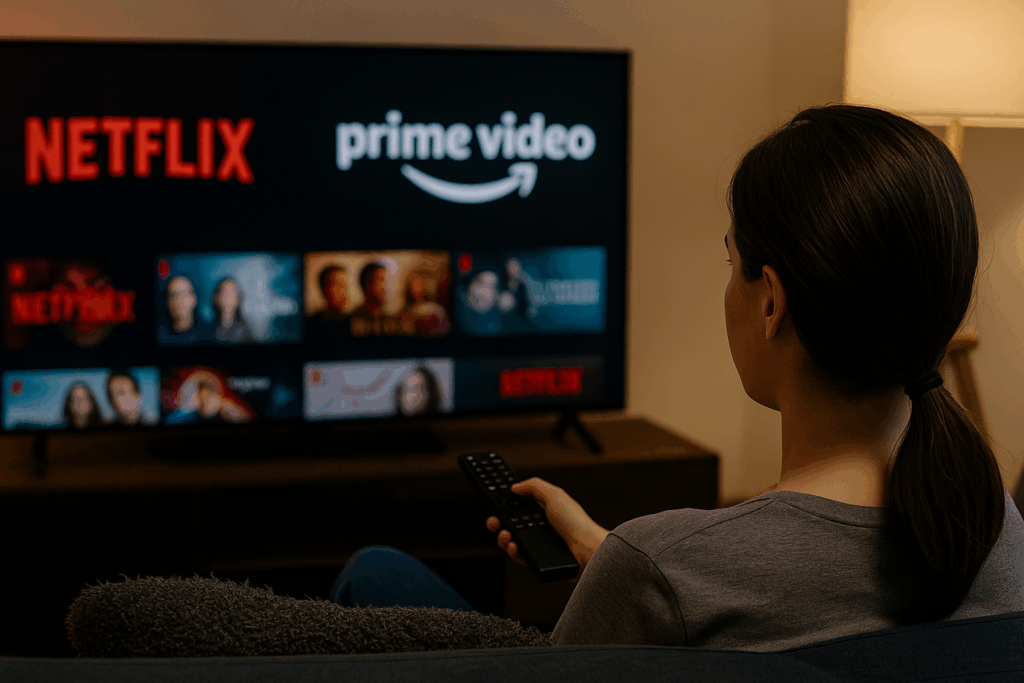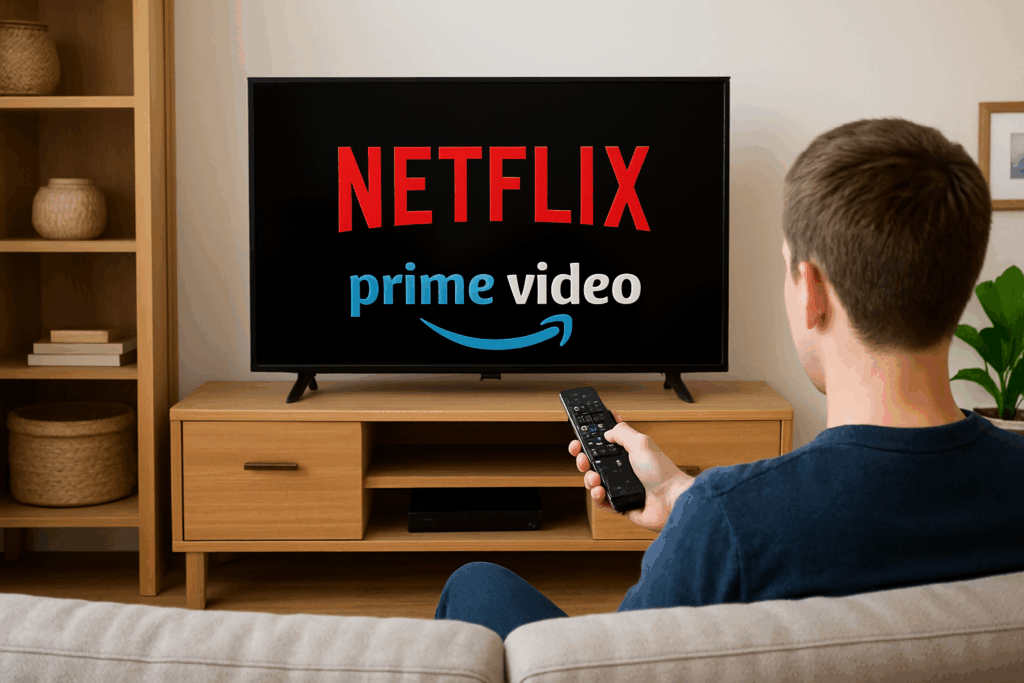If you’re like most of us who ditched cable for the freedom of Netflix and Amazon Prime Video, the words “TV Licence” probably haven’t crossed your mind in a while. After all, why pay a fee to watch live TV when you’re perfectly happy bingeing shows at your own pace?
Well… things are changing. 😬
In 2025, new updates to the UK’s TV licensing rules could affect how — and what — you’re allowed to watch on your favourite streaming platforms. And if you don’t pay attention, you could end up with a hefty fine of up to £1,000. Let’s break it all down.
📺 Quick Recap: What Is the TV Licence Anyway?
The TV Licence is a legal requirement in the UK if you:
- Watch or record live TV on any channel
- Use BBC iPlayer (live or catch-up)
Until recently, that didn’t really apply to Netflix or Prime Video because they were entirely on-demand. You chose what to watch, when to watch it — no “live TV” involved. So no license needed. Easy!

🧨 But Here’s the Plot Twist…
Streaming platforms are no longer just about on-demand content. Netflix, Amazon Prime Video, and even Disney+ are getting in on the live action. That means:
- 📣 Netflix now airs live events like WWE’s Monday Night RAW, comedy specials, and even reality show finales.
- ⚽ Amazon Prime Video broadcasts live Premier League football matches.
Once a platform starts showing live content, it falls under the UK’s TV licence rules — no matter if it’s on a smart TV, phone, or tablet.
So yes, watching that live WWE stream or football match without a TV licence technically breaks the law. 😬
🧾 What Are the New Rules?
In April 2025, the cost of a TV licence went up to £169.50 per year. But it’s not just about the price — it’s also about who needs it.
Here’s the key update:
If you’re watching any live broadcast on a streaming service — yes, even Netflix or Prime — you’re legally required to have a TV licence.
Even if you only use these services for live events once in a while, the rule still applies.
🚨 Could the Rules Get Even Stricter?
Possibly, yes. The government has hinted at more reforms. There’s talk about expanding the TV licence system even further to include anyone who streams content at all — not just live events.
Why? The BBC’s current funding model is under review and they’re looking at new ways to keep public broadcasting sustainable in the streaming age.
If those changes go through, it could mean that even on-demand-only Netflix users might need a licence in the future. Yikes.

💡 What You Should Do Now
Here’s the smart play:
✅ 1. Check What You’re Watching
If you’ve been watching live sports, WWE, or special live events on streaming platforms — you’ll need a TV licence.
✅ 2. Get a Licence (if needed)
The fine is up to £1,000 if you’re caught watching live content without one. Not worth the risk for a few live streams.
✅ 3. Keep an Eye on Policy Changes
Things are shifting quickly. If streaming-only content becomes licensable in the future, you’ll want to know about it first — not when you get a penalty letter.
💬 Final Thoughts
Streaming used to mean freedom from old-school rules. But with Netflix, Prime Video, and others stepping into the live broadcasting game, the lines are starting to blur.
If you’ve been enjoying live shows on your favourite apps — make sure you’re not accidentally breaking the law. It’s just not worth the fine (or the headache).
So, are these new rules annoying? Definitely.
But are they here to stay? Looks like it.
And will more changes come? Probably.
Stay tuned — just make sure you’re legally allowed to. 😉

